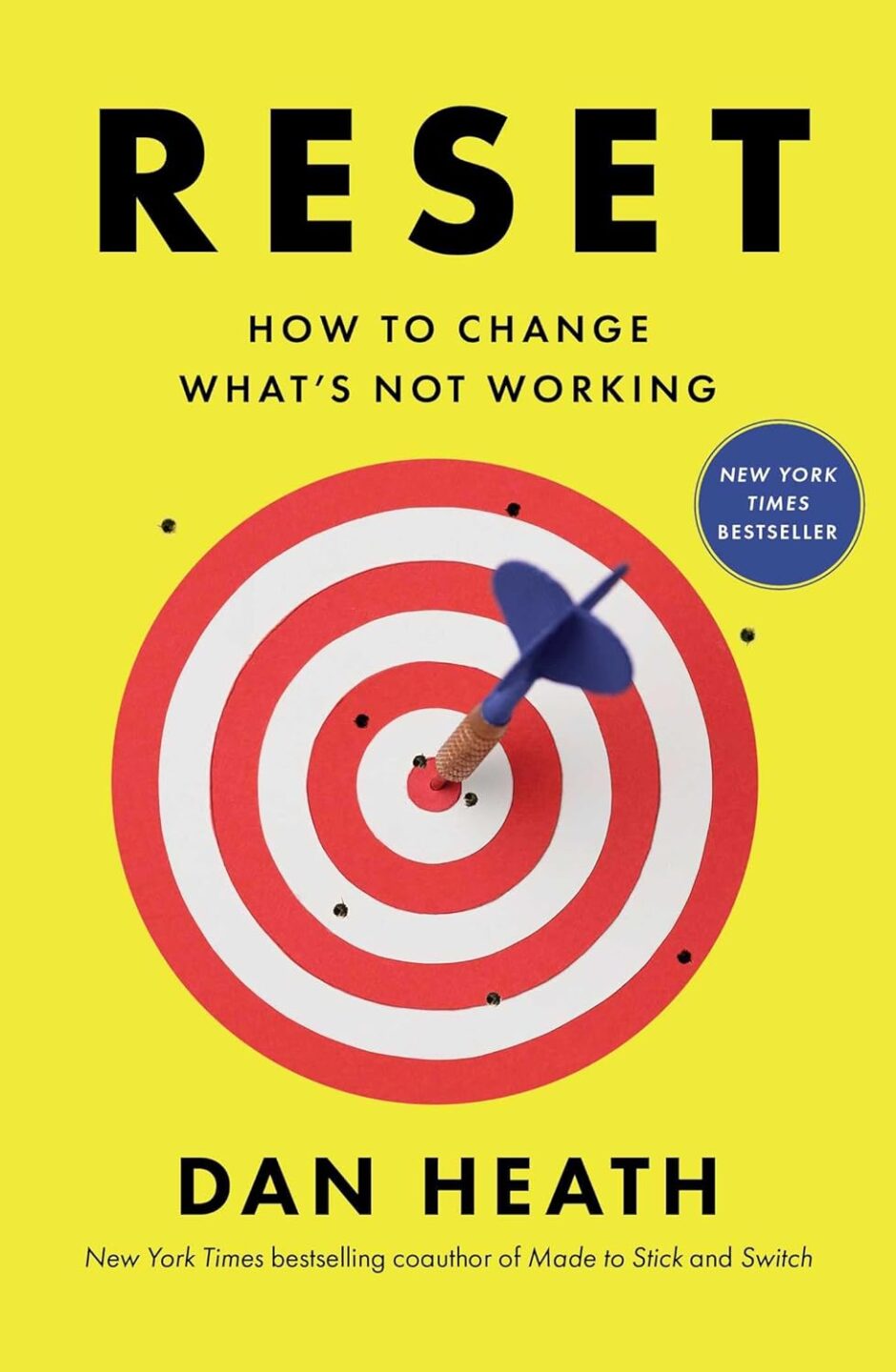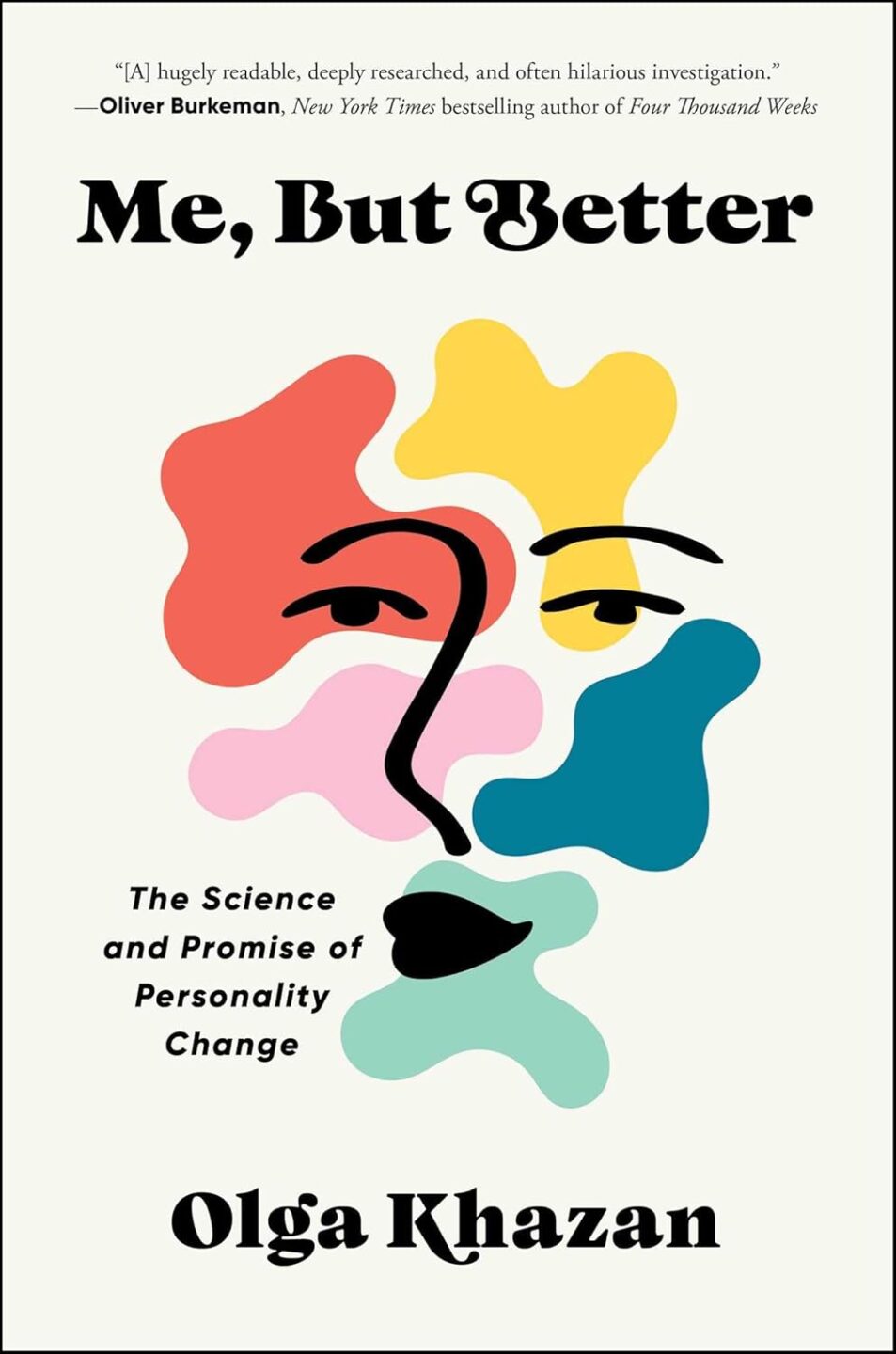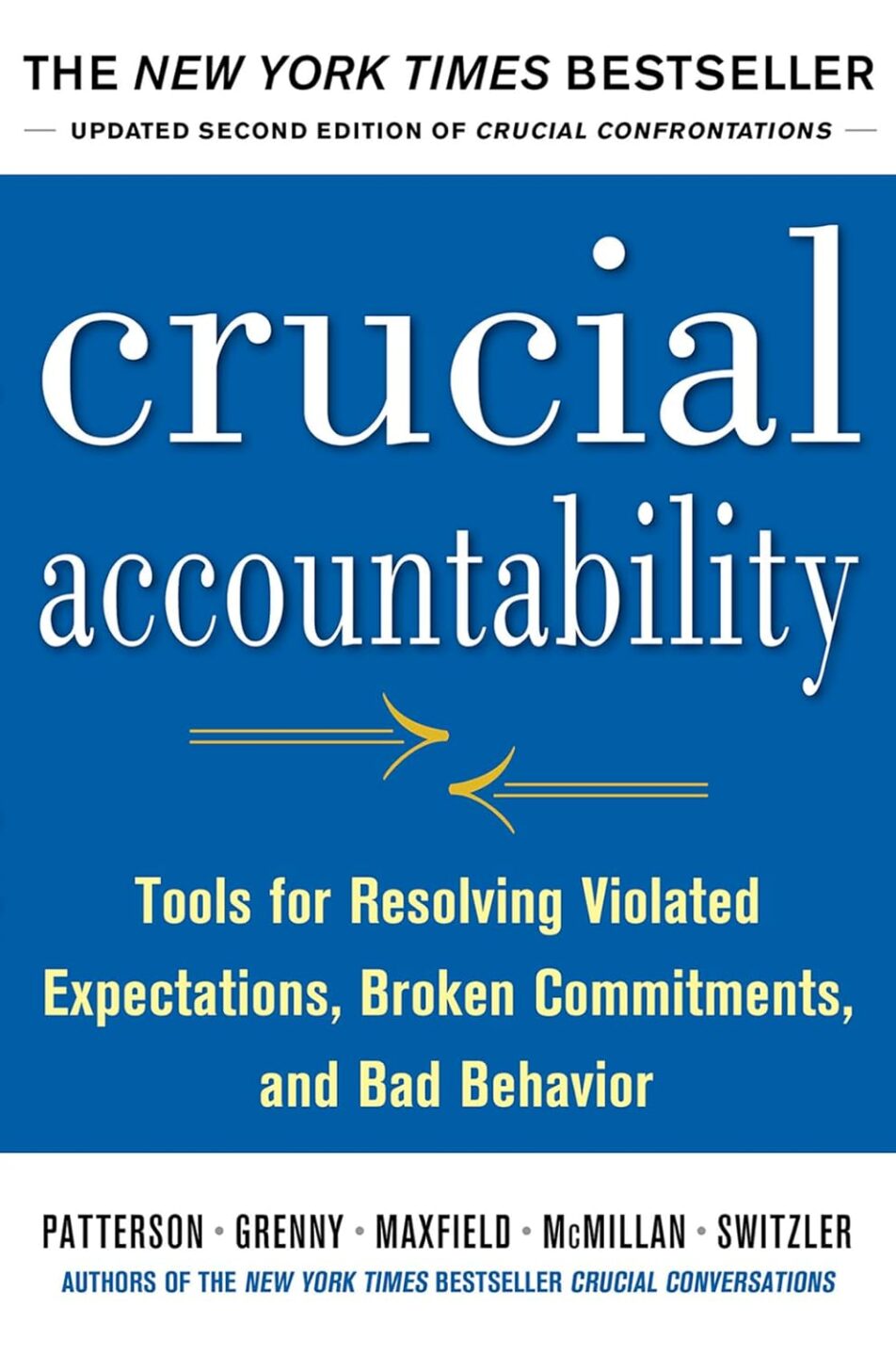My 2025 Book List: Here’s What I’m Reading

“Jo, please do one of your book reviews again,” my friend, Rebecca always asks. I haven’t done one in awhile so let me share my review of a few new books I’ve read recently.
Back in January I read this new release from Dan Heath called “Reset: How To Change What’s Not Working.” I’ve read several of Dan Heath’s other books and I enjoy him as a writer. He delves into the science here of organizational change (his Switch book is more about personal change) but replete with very engaging stories that demonstrate the points he’s trying to make. He can go from a Chik-Fil-A drive thru lesson about finding the leverage points in a system to using the power of “dumb” questions to reimage the fate of cats in kill shelters across the country.This is my absolute favorite type of business book: it reads well, and it’s both engaging and practical with simple but powerful tips that have the possibility of changing big (and small) systems. Whether you’re involved in organizational change or just sense that your division or function has room for improvement but not a lot of capacity for big changes, this book will be an immediately relevant read. I think it’s likely to be even more helpful if you read it with an eye towards one particular problem or sticking point in your workplace. That way you can weigh each section’s to-dos and decide if it’s a possible new leverage point in your search for “better.”
Next on my list is, “Me, But Better” by Olga Khazan. This is one journalist’s exploration of whether it’s possible to change your personality. I use the enneagram personality and leadership assessment with all my clients so I was really intrigued to read this book. In retrospect, I was expecting more research into personality change. While there were quotes from a few experts and some anecdotal stories, mostly it’s an in-depth exploration of Olga’s desire to change a few aspects of her personality. She used the Big 5 assessment, a widely used measure of personality that has been validated in many studies. This test is free to take online if you’re interested but in my opinion, there are more interesting personality assessment tools. The big 5 measures you on 5 dimensions, OCEAN (O=Openness, C=Conscientiousness, E = Extroversion, A = Agreeableness, N=Neuroticism). While I now know what OCEAN acronym means, I’ve never found that the Big 5 offers people a window into their personality that they didn’t have before. That said, the book was a quick and entertaining read as Olga led the reader through her dedicated attempts to influence her Extraversion, Agreeableness and Neuroticism scores in particular through improv, meet-ups, mindfulness among other activities. If there is something that truly bugs you about your own personality, I think this book gives people hope that with true focus and conscientiousness, it is possible to move the needle. However, given my work with people who are committed to change, I witness people changing their assumptions and behaviors everyday! I was hoping for more extensive research regarding personality change potentials – generally this book was not that.
“Crucial Accountability: Tools for Resolving Violated Expectations, Broken Commitments, and Bad Behavior” by Kerry Patterson, Joseph Grenny, et al. had sat on my bookshelf for years before I finally decided to put it onto my Audible and listen to this. Since this is often a hot topic for clients who struggle with team members and peers who let them down, I was curious to hear how these authors structured their advice. For background, many of these same authors write “Crucial Conversations” together which is one of my most frequently recommended books and a book I’ve used in multiple leadership seminars and courses I’ve taught. This book took up this very specific conversation of accountability from Crucial Conversations and dissected it further. If you are struggling with accountability with others in your work, I would strongly recommend this book. While the first part of the book is more general, as the book progresses it walks you through how to have very specific accountability conversations depending on whether you’re initially setting expectations, talking about unmet expectations, and even figuring out how to navigate when someone presents with multiple accountability issues – including how to decide which one to start with and then how to segue into further issues. While I listened to this book on Audible, I would highly recommend buying the physical book as a reference resource for the future. Some of the advice is so specific: “say this at this point in the conversation,” “use this phrase to change topics,” that I can’t imagine not being able to quickly look things up in anticipation of a particularly thorny conversation. It does feel like required reading for all new and experienced managers that want to up their ability to hold others to their agreements.
And if you’re someone just looking for a fun read, I picked up “Colton Gentry’s Third Act” by Jeff Zenter at my local bookstore after reading their glowing recommendation card. I’m usually a Kindle diehard but I guess I was feeling nostalgic for a paperback and grabbed it. It’s a fun, yet endearing novel that visits the music scene of Nashville, the food scene in the South, the intersection between gun rights and country music, rural living, and how to reinvent yourself when needs must. Plus, there’s a splash of romance that kept me rooting for the main character to figure out his demons. I enjoyed it even though it’s not my usual fiction read.
Those are my current recommendations. As always, I would LOVE to hear your opinion on these books if you have read them, too. Plus, I welcome your recommendations that I can add to my TBR list.


